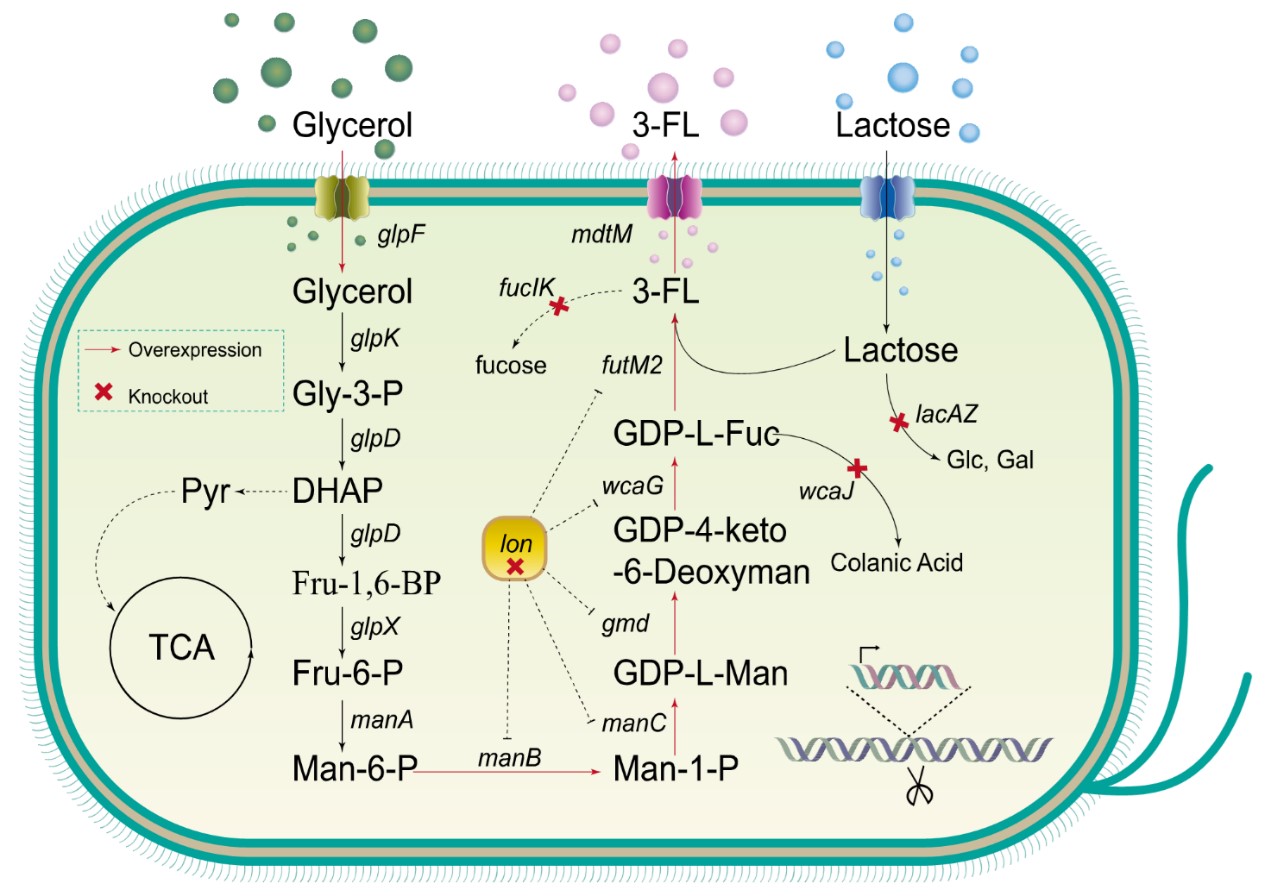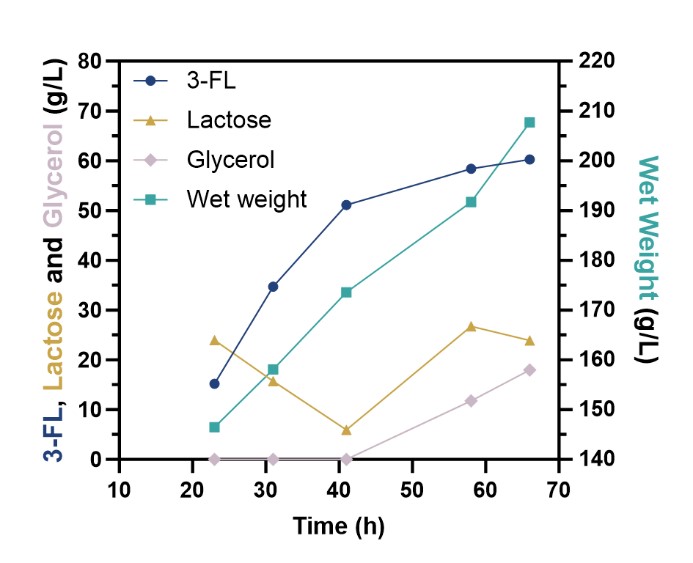
Newsroom
A research team from the Hefei Institutes of Physical Science of the Chinese Academy of Sciences has successfully engineered an Escherichia coli strain capable of efficiently producing 3-fucosyllactose (3-FL), achieving a significant breakthrough in yield.
Their findings were recently published in the Journal of Agricultural and Food Chemistry.
3-Fucosyllactose is a crucial component of human milk oligosaccharides and plays an essential role in infant health. However, due to the complexity of directly extracting 3-FL from breast milk, biosynthetic approaches have long been a major focus and challenge in scientific research.
In this study, the researchers selected E. coli BL21 Star as the host strain and implemented multiple optimization strategies to enhance 3-FL production. They initially integrated a 3-FL biosynthesis module into E. coli and screened for an efficient α-1,3-fucosyltransferase. Further improvements were achieved by optimizing the genomic integration sites of key genes, enhancing precursor pathways, and refining transport systems.
Through a series of genetic modifications and fermentation optimizations, the researchers successfully developed the high-yielding strain 3FL05-1. In shake-flask fermentation, the strain produced 11.26 g/L of 3-FL. When scaled up in a 5-liter bioreactor, the yield increased dramatically to 60.24 g/L, with a lactose conversion rate of 68% and a productivity of 0.19 g/L/h—setting a new record for microbial 3-FL production.
This achievement not only provides a new technological way for the industrial production of 3-fucosyllactose, but also serves as a valuable reference for the biosynthesis of other human milk oligosaccharides, paving the way for further advancements in this field.

De Novo Biosynthetic Pathway of 3-Fucosyllactose in Escherichia coli. (Image by LU Shujie)

Fermentation of 3-Fucosyllactose in a 5 L Bioreactor (Image by LU Shujie)
